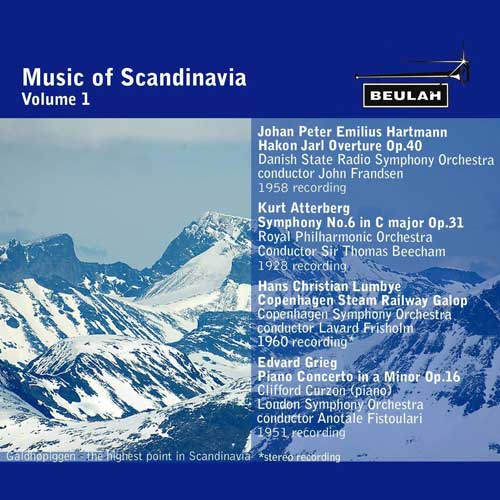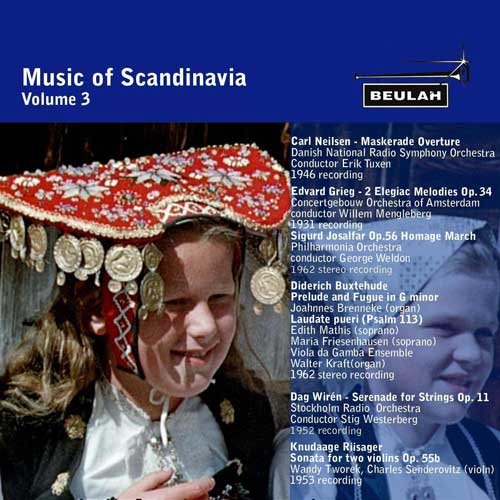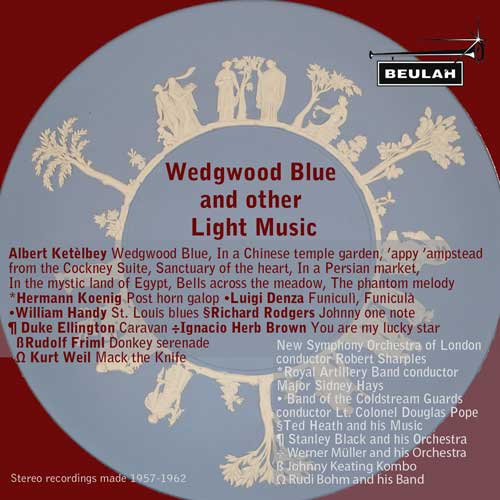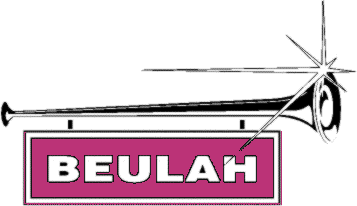|
|
New for August

The Henry Wood Promenade Concerts held
over eight weeks from July to September is London's biggest
annual music festival. Visit our Proms page where
we list music being performed this year that is available from us.
|
New from iTunes
Many music lovers miss the sound from vinyl pressings.
Many others have yet to discover how pleasant the sound can be.
Most of our albums are mastered from vinyl LP pressings and earlier
recordings (before 1953) from 78 rpm discs. It is our ability to
recreate, in the digital age, the sound from the disc era that many of
our customers find most enjoyable.
Unlike modern digital recordings tracks in our
albums do contain some distortion, and the occasional surface noises,
but for many listeners these "defects" are soon forgotten.
"Beulah already have several recordings of
English Wind Band Classics (1PD82) and the military music of Sousa and
other American composers to their credit (2PD82, 3PD82 and 4PD82 )
together with several single-work releases on Beulah Extra. The new
release comes as a welcome addition to that repertoire. There’s a good
mix of the familiar and unfamiliar – not everything comes from the Navy
or Marines, despite the overall title – and the performances are about
as good as they get, though Handel’s Where’er you walk comes over as a
rather different beast than we are accustomed to at such a brisk pace –
it’s all over in under three minutes. Everything has been well
transferred. "
Brian Wilson at Music
Web International
"This is a worthy Reissue of the Month – well
worth having for the powerful performance of the Rite of Spring alone.
You can have the whole album with
the equally fine performance of the best-known Shostakovich Quartet,
with the Kurtz Symphony thrown in, a perky
premiere recording. The Mercury
recording of the Rite was well up to the high standard achieved by that
label’s engineers and it has come up sounding fresh as paint again, as
has the Shostakovich Quartet and even the Symphony sounds more like
good early-LP vintage. "
Brian Wilson at Music
Web International

|

|
"I’ve already reviewed the Reiner recording
of Morgenblätter (Morning Papers) – Beulah Extra 2BX176 – where you
could easily think that Willi Boskovsky was conducting the Vienna Phil.
Rosen aus dem Süden (Roses from the South) receives an equally fine
performance, the recording, though released as long ago as 1955, still
sounding fine in these transfers. The other
recordings were all made with the Vienna State Opera Orchestra, the
workaday equivalent of the Vienna Phil, though also with the music in
their blood. The pick of these were recorded with them by Jascha
Horenstein and once available in CD transfers from
Chesky, of which only one volume remains available. As that CD doesn’t
include any of the four items on Beulah, their inclusion here is
particularly commendable. I don’t recall encountering the other items,
but they all receive enjoyable performances in recordings which have
come up sounding well. "
Brian Wilson at Music
Web International
 |

|
"There are more modern recordings of the
Atterberg symphony
but Beecham’s recording of the work soon after it won a prize offered
by Columbia records is very special and the recording has come up
unbelievably well for its age (1928)" Brian Wilson at Music
Web International
"Beulah have already given us Tuxen’s
recording of Nielsen’s Fourth Symphony, but the First doesn’t receive
so many outings even now. I’m pleased that Beulah have given us the
Tuxen live recording made shortly before his death in 1957. The sound
is somewhat
wiry but quite tolerable. The transfer of the Larsson Pastoralsvit
(Pastoral Suite) faces competition from a Swedish Society CD of
Westerberg’s later (1960) recording . Whichever recording you choose,
it’s an
attractive work by a composer of whose music I know too little. Not
surprisingly the two performances are very similar
and the 1952 recording has come up very well in this transfer. "
Brian Wilson at Music
Web International
 |

|
"George Weldon, whose performance of the
Grieg Homage
March opens the proceedings, was one of those conductors who seemed to
be able to turn his hand to a wide range of music. He turns in a very
respectable but hardly outstanding performance and the recording has
come up well. Mengelberg’s Elegiac Memories which close the programme
naturally sound more faded. They have already appeared separately on
Beulah Extra 1BX243 in which form I reviewed them enjoying
the way that Mengelberg prevents the emotion from getting out of hand.
With the inclusion of music by Buxtehude – born in Denmark though his
working life was spent just across the border in Lübeck – this album
covers more ground chronologically than its predecessors. The Prelude
and Fugue in g has already appeared on Beulah Extra 1BX267 and Psalm
113 on 2BX267. As I wrote, with soloists of the quality of
Edith Mathis and Maria Friesenhausen, a consort of gambas, violone,
theorbo and Walter Kraft (organ) the performances are still well worth
hearing and the recording has mostly come up well, apart from a
tendency for the pedal notes to thump somewhat in the Prelude and
Fugue. Dag Wirén’s Serenade is a jaunty little piece, mined at various
times for TV programmes. The same performers re-recorded it on a Decca
EP c.1959 and
I’m surprised that this was not preferred to the slightly muffled but
acceptable mono version which Beulah have given us. Both Riisager’s
2-violin Sonata and the performers were new to me. It’s easy-going
music, though not very memorable, and it receives a good performance,
well recorded for the early-LP era. "
Brian Wilson at Music
Web International
 |

|
Downloads from Beulah Extra
 |

|
 |
1st movement Andante

2nd movement Andante

3rd movement Largo

4th movement Bouree

|
"When these two recordings were reissued on
Golden
Guinea in 1967 the recording quality was panned by at least one
reviewer, so I’m pleased to report that it has come up sounding well as
transferred here, though the oboe tone is a trifle thin and rather too
prominent. Golden Guineas were often plagued by surface noise and
that’s absent, too. Styles of Handel performance have moved on
considerably since 1958 and these are best regarded as mementos of how
it used to be, though the oboe concerto is stylish for its time. The
organ employed for Op.7/1 is too large-scale for the music – Beulah’s
own reissue of the Op.4 set performed by Karl Richter (2-5BX198)
reminds us that even in 1958 some organists knew how to keep their part
in proportion. "
Brian Wilson at Music
Web International
 |
1st movement Allegro con spirito

2nd movement Andante

3rd movement Rondo

|
 |
1st movement Andante grazio

2nd movement Andante un poco

3rd movement Rondo
|
 |
1st movement Allegro

2nd movement Andante

3rd movement Rondo

|
 |
1st movement Allegro

2nd movement Andante

3rd movement Rondo

|
Last
MonthBach and Beethoven
Beulah in Korea
|
The items below are
adverts that will take
you
away from this site



|
un poco |
